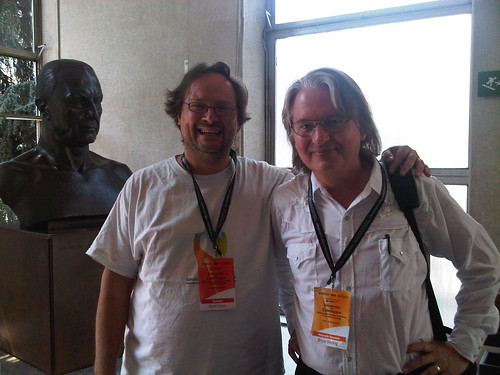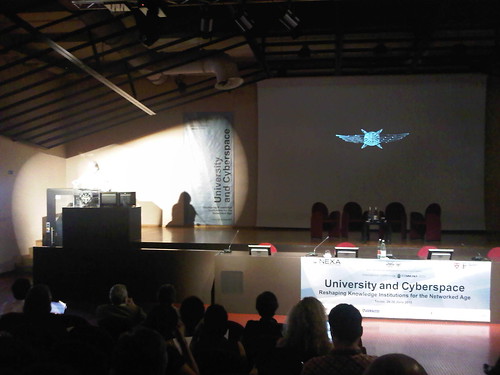

The following excerpt from the first
Dune
novel (pg. 309) has certainly raised eyebrows of readers of the English version who are also fluent in any south Slavic language.
Deep within the cave, someone began chanting:
"Ima trava okolo!
I korenja okolo!"
Jessica translated silently: These are ashes! And these are roots!"
The funeral ceremony for Jamis was beginning.
The
Fremen chant is in Serbian/Croatian/Bosnian. These closely related languages have their differences, which would not affect the above text - it would be the same in an any of them.
At first glance, the translation is deeply flawed, as the word "trava" in this form refers to
grasses or
herbs, while the form for
ashes in the above languages would be "pepela" (from the infinitive "pepeo"). There are few solutions to this puzzle.
1. Lady Jessica made an errorTaking the contemporary meaning of the chant in Croatian/Bosnian/Serbian, Lady Jessica should have translated the chant with:
There are grasses/herbs around! And [some] roots around [too]!
This "mistake" is of no consequence later in the book, there are no incidents involving error of translation between Jessica or Paul on one hand, and the Fremen on the other.
As a device to show Jessica as capable of error ("only human" in the contemporary meaning*) it would be lost to the wast majority of readers who lack familiarity with Balkans linguistics. Therefore, we have to consider the next possibility:
2. Frank Herbert made an errorAnother option is that the writer, Frank Herbert, intended the translation as "original," the "true" meaning conveyed by Jessica intended to be understood by English-language speakers, and then precluded it with a foreign-language translation to make it more exotic. In that case, he should have put the Fremen chant as
"Ima pepela okolo!
I korenja okolo!"
However, there's also a third option that would put at ease the mind of
Dune fans, some of whom consider Herbert infallible.
3. Nobody's faultNo mistakes were made: Herbert grokked his Bosnian/Croatian/Serbian, Jessica's Fremen was impeccable. However, considering that the action takes place in the year of 10,191
A.D. A.G. (~ 21,264 A.D. - thanks
SandChigger), it would be wise to suggest that the languages changed in the meantime, especially through mixing and matching of populations and cultural influences across various planets.
It is well-known fact that
the meaning of some English words has changed in little over 400 years, from the time of Shakespeare or the King James Bible. For instance, the werb "to let" meant "to hinder", "awful" meant "deserving of awe," and "notorious" meant "famous". Or consider that in contemporary mainstream slang a person can at the same time be considered
cool and
hot.
* No pun intended, but the word human in the Dune novels is used to designate those with elite capabilities from the rabble, as in the "humanity test" involving the Gom Jabar.



